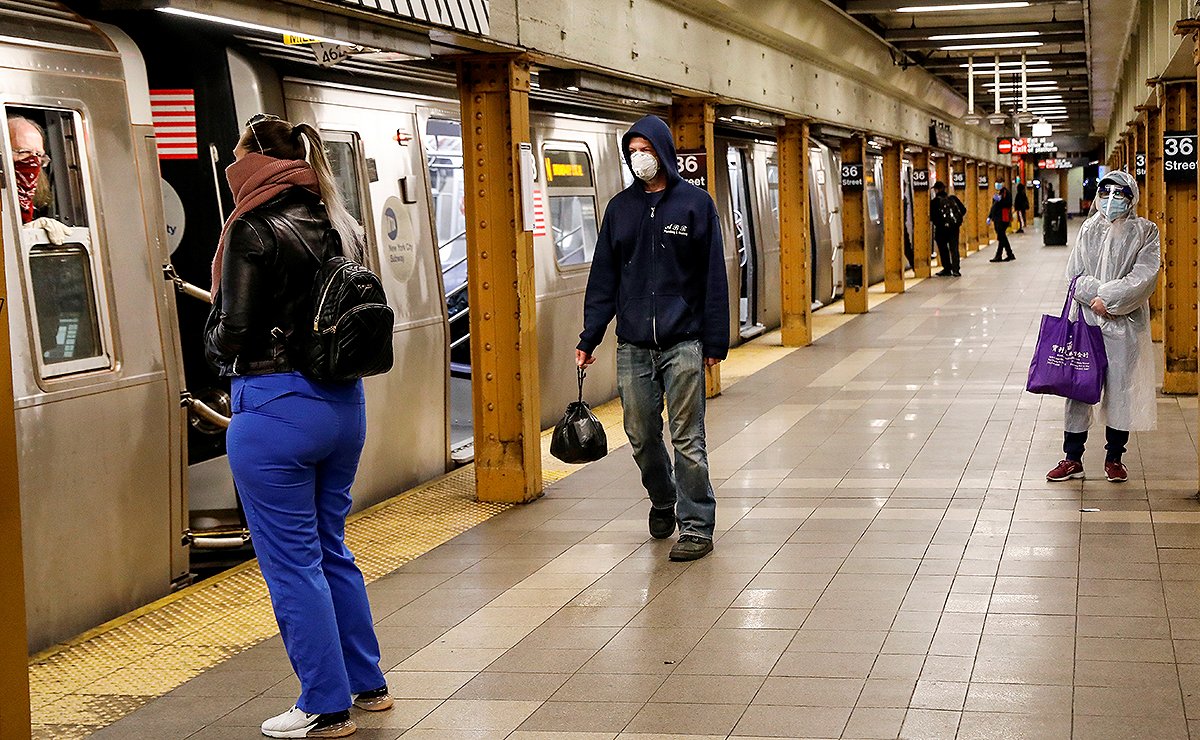| CDC urges driving to work; transit officials not on board |

The Centers for Disease Control and Prevention is recommending that employers offer employees incentives to use private vehicles to get to work, rather than public transportation or shared rides. Part of a broader set of coronavirus-related workplace recommendations, the guidelines included “biking, walking, driving or riding by car either alone or with household members” as options.
Paul Skoutelas, CEO of the American Public Transportation Association, criticized the CDC’s guidance in a statement released on Friday.
He said many individuals face financial barriers to owning a car and the guidance ignores essential workers’ reliance on public transportation. He also said increased traffic could lead to increased pollution.
“Gridlock and polluted skies are not the mobility future we want emerging from this crisis,” he said.
Corinne Kisner, executive director of the National Association of City Transportation Officials, also issued a statement on Friday, calling the CDC’s recommendation “misguided, unsafe and unworkable for cities.”
“Driving alone is the least efficient, least sustainable and least affordable way for people to move,” she said.
Companies providing shared transportation services have ramped up safety protocols in response to the coronavirus. Lyft said in a blog post May 7 that it is launching its Health Safety Program, which requires drivers and riders to wear face masks and confirm they are asymptomatic before boarding. The program provides cleaning supplies and masks to the driver and health safety education for both parties.
Uber CEO Dara Khosrowshahi said on May 13 that Uber’s Go Online Checklist will ensure drivers wear masks while on the job by asking the driver to take a selfie. Riders and drivers are both allowed to cancel rides with no penalty if they feel unsafe.
Despite Uber and Lyft’s implementation of safety measures, a survey conducted in April by the IBM Institute for Business Value shows that some consumers are leaning toward following the CDC’s recommendations. Out of 25,000 U.S. customers polled, more than 17 percent said they plan to use their own vehicles more because of the coronavirus, and about 1 in 4 said it will be their only transportation method. However, almost 25 percent of respondents said that they plan not to purchase a vehicle for more than six months.
More than 20 percent of respondents who regularly used public transportation such as buses, subways and trains said they will discontinue using these services.
IBM also expects increases in shared-mobility trends to dwindle. The new CDC guidelines may prove to expedite that process.
— Krystal Hur
What you need to know
Study: AVs could only prevent third of U.S. crashes Self-driving cars, long touted by developers as a way to eliminate road deaths, could likely only prevent a third of all U.S. road crashes, an analysis of traffic accidents released on Thursday has found. The study by the Insurance Institute for Highway Safety, a research group financed by U.S. insurers, found the remaining crashes were caused by mistakes that self-driving systems are not equipped to handle any better than human drivers.
VW finalizes investment in Argo AI Eleven months after Volkswagen Group announced a $2.6 billion investment in self-driving startup Argo AI, the deal has closed. Officials from the two companies and Ford Motor Co. said a regulatory review process was completed and Volkswagen’s investment was made final Monday. For companies large and small, the pandemic brought economic uncertainty across the spectrum of investments in self-driving technology. While there were no signs the pending deal was threatened, Monday’s closing nonetheless helps the three companies push ahead with their AV efforts.
Zoox’s potential role in Amazon Of all the ambitious projects attempted in the short history of self-driving technology, no company has been more audacious than Zoox. Since the startup’s founding nearly six years ago, its executives have pursued an arduous path that involves developing an autonomous driving system, creating a vehicle platform from the ground up and building a ride-hailing platform all at the same time. So it seems fitting perhaps that another aggressive company, Amazon — which has sought to do nothing less than dominate American retail — has emerged as a potential suitor as Zoox prepares for sale.
Roundup
Russian technology company Yandex will maintain a presence in Detroit and expand its self-driving fleet in the city once testing resumes after a coronavirus-related pause.
ZF puts down a big bet on future of commercial trucks.
General Motors is developing an electric van aimed at business users, sources tell Reuters.
Uber launches hourly ride booking option in some U.S. cities.
Audi seeks to regain tech leadership with AV project.
Hyundai’s new technology helps owners identify safety recalls.
Germany is doubling incentives offered to buyers of battery-powered cars as part of a $146 billion economic recovery package, but has refused pleas for the program to include internal-combustion cars.
Jaguar Land Rover has not revealed much about the next Range Rover, except that electrified powertrains will be on the menu.
The redesigned Mercedes-Benz S Class will bring a “completely new level” of artificial intelligence to the luxury sedan class when it goes on sale this year, Daimler CEO Ola Källenius said.
In Turin, Fiat is testing an automatic switch to electric mode for its hybrid cars.
Brain food
The future of electric vehicles in the U.S. depends on charging networks that have gaps.
Last mile
Israel-based Electreon Wireless will test a system that allows EVs to be charged while driving.